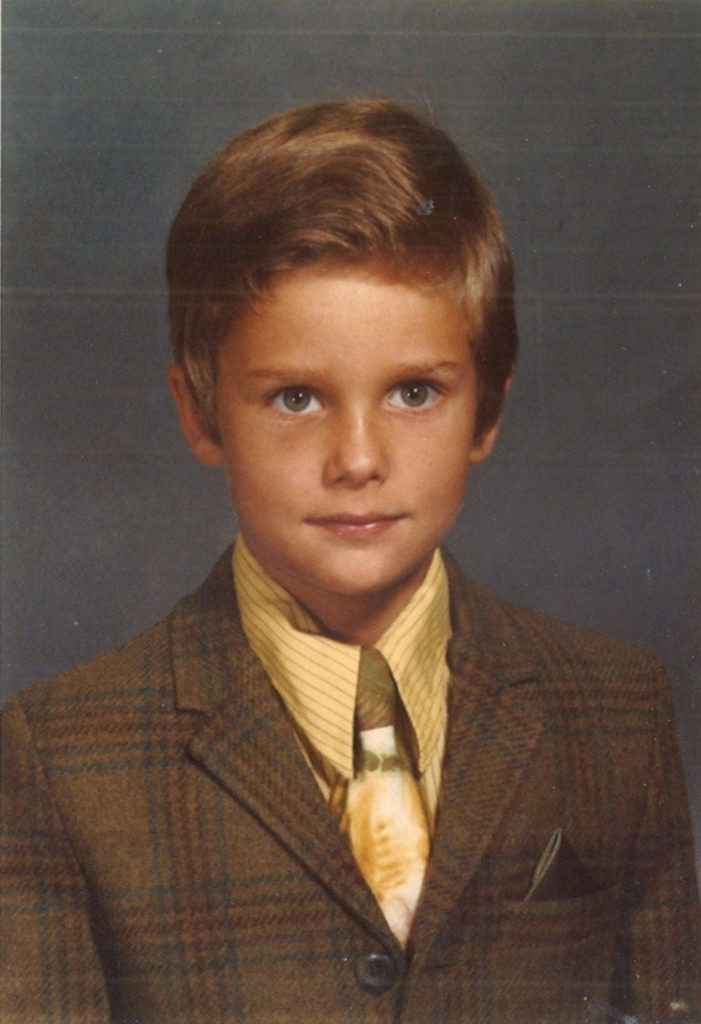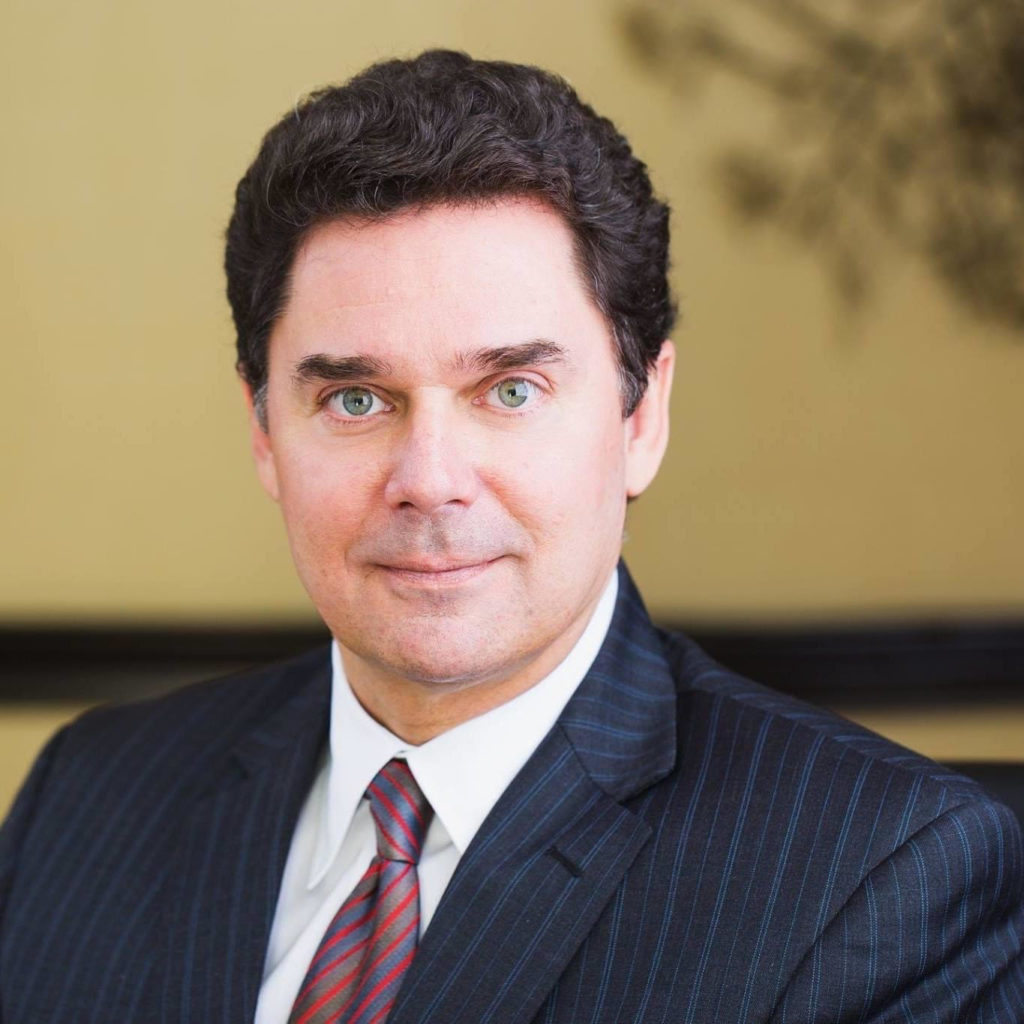He’s one of the most prominent defense attorneys in the Upper Peninsula who, over 29 years of practice, has occasionally encountered controversy. But Karl Numinen of Marquette doesn’t shy away from it all. In his talk with Brian Cabell, Numinen explains his legal philosophy and also sheds some light on himself as a person, a father…and a trumpeter.
BC: Where we you born and raised?
KN: I was born in Lansing and raised in Marquette for about seven or eight years, and then we eventually returned to Lansing. My dad was a professor at NMU. One of the most vivid memories I have of Marquette is the Bunny Bread factory on Washington Street. I was just fascinated by it. It had this huge neon rabbit head outside and, as a kid, I was just fascinated by it. And to think that we were eating the bread that came from right there was really interesting to me.
BC: What kind of child were you?
KN: I think I was a precocious kid. I’ve always been someone who asked a lot of questions. Probably drove my parents and teachers crazy.
BC: What was your family like? Classic American?
KN: Sure, my dad was a professor when I was a little kid, and my mom worked for what was then called the Area Agencies on Aging which were the senior center homes and programs. We moved back to Lansing when I was in third grade…my parents both worked for the government there.
BC: When you were a boy, did you have a hero, someone you really looked up to?
KN: Starting in about fifth or sixth grade, my hero was Doc Severinson. (Cabell laughs) I thought I was going to be a trumpet player and I remember in junior high, I got the award for the most minutes practiced playing your instrument for the year. I played the trumpet ALL the time.
BC: So that was your aspiration when you were younger? To be a trumpet player?
KN: Absolutely. In fact, even in high school, I think most people who knew me would have said I was going into music.
BC: Do you recall the happiest moment you had as a child?
KN: I really liked my birthdays, mostly because my parents would do fun things–for example, have running races for birthday events. I remember one thing in particular when I was a little kid, my dad got this big salad bowl, and he got all these small items to put in the salad bowl, and then every kid got to reach in and pick out an item, and I got a combination lock. And I just thought that was the coolest thing ever.

Numinen, as a boy, all dressed up, with dreams of being the next Doc Severinson.
BC: What about the most traumatic moment as a child?
KN: Every kid has the moment when a family pet dies, so that happened. But really, nothing particularly traumatic. I had a pretty blissful childhood.
BC: Where’d you go to college?
KN: I went to Michigan State University because it was the only university I applied to, much to my parents’ dismay because they both got their Masters from U of M. But my girlfriend at the time who eventually became my wife–we started dating on my 15th birthday–was in Lansing, so I wasn’t going to leave Lansing. Ann Arbor seemed a million miles away from Lansing.
BC: How would you describe yourself as a college student? Nerd? Jock? Druggie?
KN: No, I never got into drugs at all. I smoked some marijuana but I was a good student. I switched out of music, and got a degree in social work. I actually began in psychology but then got into social work which got me into politics.
BC: So how did the decision to get into law come about?
KN: As a senior at MSU, I had to do an internship with an agency, and I went to an open house for agencies, and the one table that didn’t have a line in front of it was a guy reading a newspaper, drinking coffee. I went over and said “What do you do at your agency?” and he said, “This is what I do. I drink coffee and read the newspaper,” so I decided that’s what I want to do. He turned out to be an aide for Senator Don Riegle. And Riegle had offices all over the state and they used college interns in the offices, so I did that for a year in Lansing. And then at the end of the year, a job opening in Marquette came up, they knew I was from Marquette, and they offered me the job as a paid employee.
BC: But you still hadn’t gotten into law, so how’d that happen?
KN: Well, I looked at Riegle’s staff, and all the people that were decision-makers were either lawyers or PhD’s. So I decided I was going to go to law school but I never planned on practicing law. I thought I would stay in politics. In law school, I worked for Governor Blanchard full-time as a special assistant to the governor. I went to law school from six o’clock to ten o’clock at night at Cooley Law School in Lansing.
BC: So you finished law school. Then what?
KN: Well, when I finished law school, that’s when Blanchard lost the election, so we were all out of a job. So now, all of sudden, private practice seemed more attractive. (Cabell laughs) I then took a job as a clerk at a law firm in Lansing as I was studying to take the Bar. I passed the Bar and immediately started doing criminal defense. Then I got recruited to a bigger firm in Lansing, but I had to commute every from Grand Rapids because we (he and his wife) were living in Grand Rapids, and that was just brutal. So I left that firm and went to a firm in Grand Rapids–great big firm, 150 lawyers–and was there for about a year, and realized I didn’t want to be in a big firm. So a few other lawyers and I formed a smaller firm in Grand Rapids, and I did that for seven years.
BC: What ultimately brought you back to the UP?
KN: Well when my daughter was born, my wife took maternity leave and we discussed her not going back to work and being a stay-at-home mom, and I was fully in support of that, but the only reason we were in Grand Rapids was her job–she was an interior designer there. So my suggestion was, Let’s move back to the UP. She immediately agreed, and we found a place out in Negaunee Township and then moved out to Humboldt, a beautiful spot, 80 acres, because my wife was into horses. I built a barn, I built a cabin out there, I cleared some pasture area…
BC: Is that who you really are? A farm boy, a builder?
KN: I was willing to try it, and I enjoyed it while we were there, but then life takes its turns, and I now much prefer living in downtown Marquette.
BC: What’s the most gratifying part of practicing law?
KN: It almost sounds trite but there’s this notion of helping people–people who are in their absolute worst situation in their life a lot of times, a crisis situation, either because they’re in the midst of a nasty divorce, or they’ve been accused of some heinous crime, or they’ve been traumatically injured. So those are my three practice areas, and in all of those, people are at their worst. I like to think that we’re able to help them through that crisis in the best possible way.
BC: How about the least appealing thing about law practice?
KN: The business part of it. We spend so much time doing the administrative stuff which includes time-keeping and billing. I’m running a small business with eight employees for whom we provide their health insurance, their 401k’s. I own two buildings, one in Marquette, one in Houghton with overhead, copy machines. I just had an interview with a website guy to change our website–I loathe that stuff.
BC: A question all of us non-lawyers always wonder about–Have you knowingly defended people you knew were absolutely guilty?
KN: Let’s define the terms at bit. I knowingly defend people who are accused of crimes. They’re not guilty until a jury says they’re guilty…
BC: Let’s get away from the legal distinction, the semantics. In your heart, when you’re sitting across from someone and you’re pretty sure he murdered someone or raped someone, how do you feel? How do you deal with that ethically?
KN: There are two types of defenses in every case. A factual defense, and a legal defense. So the factual defense would be, “I didn’t do it. It wasn’t me, you got the wrong person.” Then there’s the legal defense, and a legal defense would be, “Okay, I did do this but I either had justification for it, or what I did isn’t the crime I’ve been charged with.” For instance, earlier this year, I represented a guy accused of criminal sexual conduct, first degree, multiple counts of forcible rape. He tells me, “Yes, I had sex with her, but no, I did not do what she says I did. It was consensual sex.” So it was both factual and legal. So we went to a trial on that.
BC: Do you sometimes have contempt for the clients you are representing?
KN: No, but I sometimes do have a low tolerance threshold for clients. Those fall into two categories. One, the client that doth protest too much, they’re alway saying, “Let me explain,” and they’re going over and over again how much they did not do what they’re accused of. I tell them, “I got it, I got it. Let me work with what we’ve got here.” But the other is, the client who takes the position of, “Look, I didn’t do this so the whole process is corrupt, including you!” And I have to tell them, “Look, I’m on your side! I’m trying to help you!”

Numinen handles divorce and personal injury cases but is best known for his work as a criminal defense attorney.
BC: Have you ever been threatened?
KN: Oh yeah. I’ve been threatened by my own client on more than one occasion. But more so, I’ve been threatened by the other side. And no matter what I do, when it gets in the newspaper or on TV or social media, there’ll be comments that are personal attacks on me by people who’ve never met me, don’t know a thing about me, other than what they’ve read or seen. Over the years, I’ve become somewhat inured to the negative comments on social media, but it still, every now and then, stings a little. But what’s really offensive is not when people say things about me, but when they write about my daughter. In one of the sexual assault cases, someone said, “What would happen if your daughter was raped?” That was really offensive.
BC: What was the most egregious threat that you can remember?
KN: I’ve represented some people who’ve done some pretty heinous things. I’ve had clients who negotiate some kind of a plea and then get sentenced prison, and they’ve said, “I’ll see you when I get out.” As a threat to me. There are some people in the world who will never take any responsibility for their behavior.
BC: How about your most gratifying case?
KN: I ‘d have to say it’s one a couple of years ago when I represented a young black man who was accused of rape on NMU’s campus. He was one of the most polite, respectful young men. He had a career in front of him, possibly as a professional football player, and he was accused of rape. He asserted his innocence from the very beginning, never wavered on it, and we went to trial, and got a not guilty verdict. Criminal defense attorneys often say it’s easy to defend someone who’s not guilty, because what’s the worst that could happen? He gets convicted, but that may be justice. But it’s really, really stressful to represent someone you know is innocent because if you screw that one up, that person suffers for the rest of their life.
BC: What’s the greatest joy you get out of life these days?
KN: No question about it, doing music and plays with my daughter. She comes over to my house three times a week at least–she plays electric guitar and I play my trumpet, and she sings. I get goosebumps thinking about it.
BC: Bucket list item. Anything you want to do or see?
KN: Yes, and I’m doing it. I’m writing a novel. It’s coming along nicely.
BC: Legal, I assume.
KN: The premise of the novel reflects a common desire of men our age to just walk out the door and just disappear. So I’m writing about an attorney who’s at the midpoint of his life and maybe the end point of his career, and he just disappears.
BC: Final question. Is there a higher power out there looking down on us?
KN: Oh absolutely. I’ve been in and out of religious practice in my life, but I’ve never been out of spiritual practice. It’s just taken different flavors, different turns, and different expressions. I absolutely have always believed in a higher power.
BC: Thanks, Karl.


